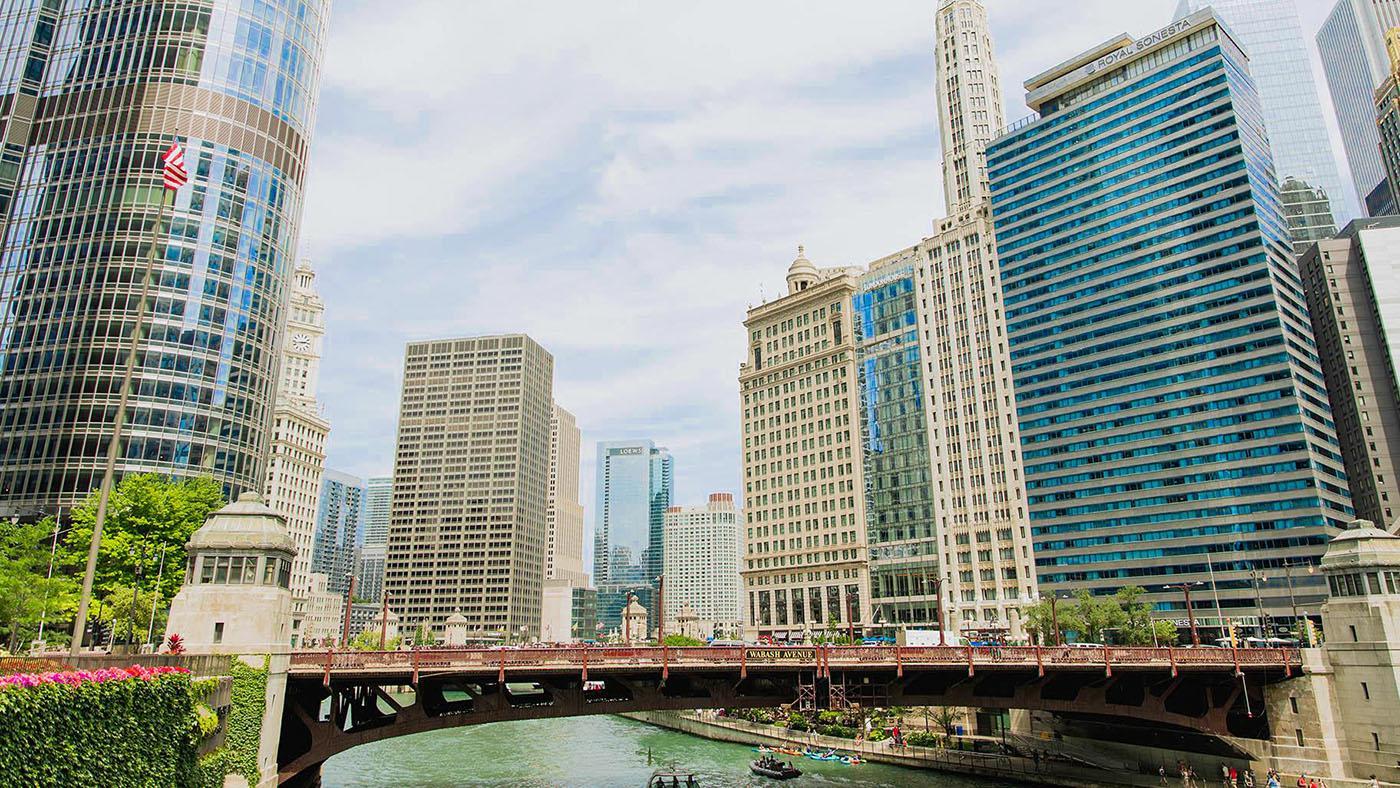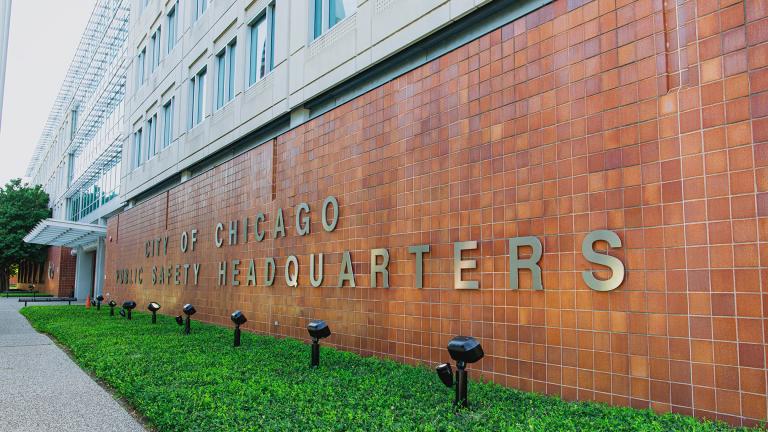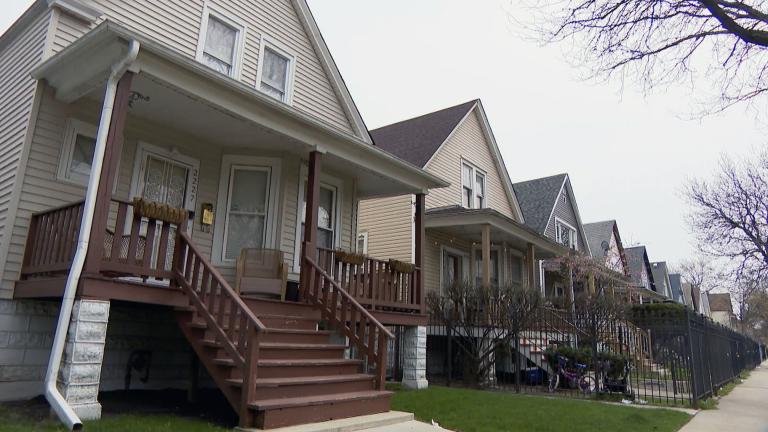 (Michael Izquierdo / WTTW News)
(Michael Izquierdo / WTTW News)
The Chicago City Council is set to get its first look at Mayor Brandon Johnson’s plan to spend every penny of federal relief funds to strengthen the city’s tattered social safety net and provide direct aid to Chicagoans still struggling to recover from the COVID-19 pandemic before a looming deadline.
The Budget Committee will hold an all-day meeting Monday to examine how Chicago has spent its share of the federal relief package known as the American Rescue Plan Act, or ARPA.
It will be the first time alderpeople have publicly examined how the federal funds have been spent since October 2021, and comes after a WTTW News analysis showed city leaders have struggled to make good on promises to use the influx of cash from the federal government to repair the damage caused by the pandemic, which has killed nearly 8,400 Chicagoans, hospitalized another 58,000 and upended the lives of millions across the U.S.
Johnson has promised to use the funds in communities that need them the most.
“We’re going to make sure that the communities that have been impacted the most by gross disinvestment, that those dollars reach those communities,” Johnson said Feb. 16. “We’re going to make sure that resources actually get to the neighborhoods and to the people who are most impacted by, unfortunately, the long history of disinvestment in this city.”
In all, Chicago spent $202 million on a host of programs including affordable housing, mental health, violence prevention, youth job programs and help for unhoused Chicagoans through March 31, according to the most recent report filed with the U.S. Department of the Treasury as required by federal law.
From Jan. 1 to March 31, Chicago spent approximately $42.5 million in federal relief funds, records show. By comparison, Chicago spent $160 million in all of 2022 and 2023.
Chicago’s entire budget for the federally funded programs is approximately $542 million, records show.
That means Chicago spent approximately 37% of the relief funds earmarked to help Chicagoans directly by March 31, up from just 29% as of Dec. 31, reflecting efforts by Budget Director Annette Guzman to get money flowing as fast as possible.
“No one was minding the store” before Johnson took office, Guzman said. “This mayor recognizes the challenge he has been presented with. We are going to use this money to lift up communities.”
The city spent an additional $1.3 billion in federal COVID-19 relief funds to shore up Chicago’s pandemic-devastated budgets, with approximately $33 million left unspent as of March 31, according to the Treasury Department reports.
Under rules established by the federal government, Chicago officials have until 2026 to spend all of the federal funds the city got to repair the damage caused by the pandemic, which unleashed an economic catastrophe that helped fuel a surge in crime that has yet to fully recede.
However, the money must be budgeted by the end of year, which means Johnson is facing a rapidly ticking clock as he weighs how to put his own stamp on the so-called Chicago Recovery Plan crafted by his predecessor, former Mayor Lori Lightfoot.
Guzman spent much of her first year in office analyzing the issues with the city’s efforts to spend the federal relief funds on a wide range of programs.
“We looked at every single project,” Guzman said, adding that she is “very confident” the city won’t lose a single penny of federal funds. “We restructured the entire program.”
Guzman at the end of April briefed alderpeople on her analysis, which determined which programs could meet the looming deadlines and surveyed the City Council about its priorities for the funds that have not been obligated or spent.
That work formed the basis of Guzman’s recommendation City Council members are set to review on Monday: move $80 million from programs at highest risk of blowing the deadlines into programs that city officials can implement quickly.
Plans to spend $5 million for a 20-bed center to help Chicagoans with an alcohol addiction and an additional $500,000 to fund plans for a shelter that will accept anyone experiencing homelessness will be scrapped, Guzman said. Other programs will see their budgets shrink to ensure there isn’t money left unspent, she added.
Guzman will recommend using an additional $32 million to restart the effort that sent $500 per month to Chicagoans living below the federal poverty line as part of a basic income program, records show.
That would be double the size of the initial pilot program that sent $500 to 5,000 Chicagoans in 2022, and the largest in the nation.
“This will make a powerful statement that this program is worth funding,” Guzman said.
The revised plan also calls for additional funding for efforts to create jobs for young Chicagoans, and to shelter Chicagoans experiencing homelessness as quickly as possible, records show.
In all, the revised plan calls for the city to spend a total of $573 million on programs divided into six categories: housing and homelessness supports; human rights, arts and culture; effective governance; community safety; youth and economy; and mental health and wellness.
Guzman has also streamlined efforts to ensure the funds get out the door as quickly as possible, creating a new steering committee within City Hall and promising monthly reports to the City Council as well as a new dashboard for the public this fall.
There is now a centralized system to ensure programs don’t fall through the cracks, or get tangled in red tape, Guzman said.
“Before, departments were left to fend for themselves,” Guzman said. “We needed a wholesale overhaul.”







